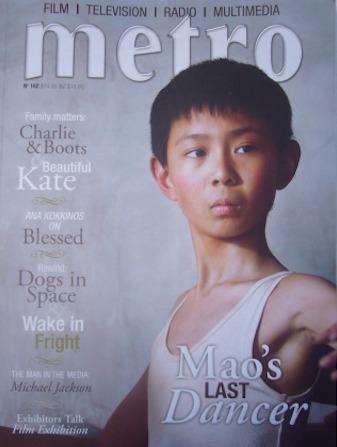Published in Metro magazine
Television series Flight of the Conchords tackles the serious task of subverting stereotypes while still making us laugh, writes Neha Kale.
In April 2006, Bret McKenzie, one half of New Zealand folk parodists Flight of the Conchords, told Time magazine: ‘Musical comedy sounds awful – I guess I’d describe what we do as understated banter between weird songs.’ The following month, HBO, the US TV network behindEntourage and The Sopranos, leaked their upcoming comedy series Flight of the Conchords on the internet, allowing viewers to share the pilot virally across the web. Flight of the Conchords sparked a cult following on YouTube, with mock music videos filmed and posted by fans, well before its first US broadcast in June 2007. Drawing on the conventions of sitcom, musical comedy and observational documentary, the show follows the tribulations of Jemaine Clements and Bret McKenzie, ‘the fourth most popular folk parodists in New Zealand’, who play fictionalised versions of themselves. The Flight of the Conchords battle their incompetent manager Murray (Rhys Darby), wild-eyed stalker Mel (Kristen Schaal) and locals who continually mistake them for Australian or British in their bid to meet women and crack the Manhattan music scene.
However, the show turns the tired starving-artists-in-New York narrative on its head, by interrupting the droll exchanges between Bret and Jemaine with spontaneous musical numbers. Inspired by pop cultural influences as diverse as the hip hop video clip, French pop and David Bowie, these musical numbers are as important a narrative device as the banter between Jemaine and Bret, delivered in the famously flat Kiwi accent. Written and co-executive produced by Clements and McKenzie, Flight of the Conchords was commissioned for the US market as part of HBO’s comedy programming. Mostly dispensing with New Zealand or Australian television conventions, Flight of the Conchords takes its cues from British cult comedies The Office and The Mighty Boosh and US-made Arrested Development, where parody, absurdity and comic awkwardness are the key modus operandi. The show’s central punchline trades on the relative obscurity of New Zealand in the American cultural consciousness where Bret and Jemaine are constantly misidentified despite their quintessentially Kiwi traits. Cultural confusion is the show’s recurring trope, eliciting humour through a playful interrogation of racial stereotypes. In this way, the narrative conventions of Flight of the Conchords invert widespread assumptions about culture and race.
[Excerpt]
